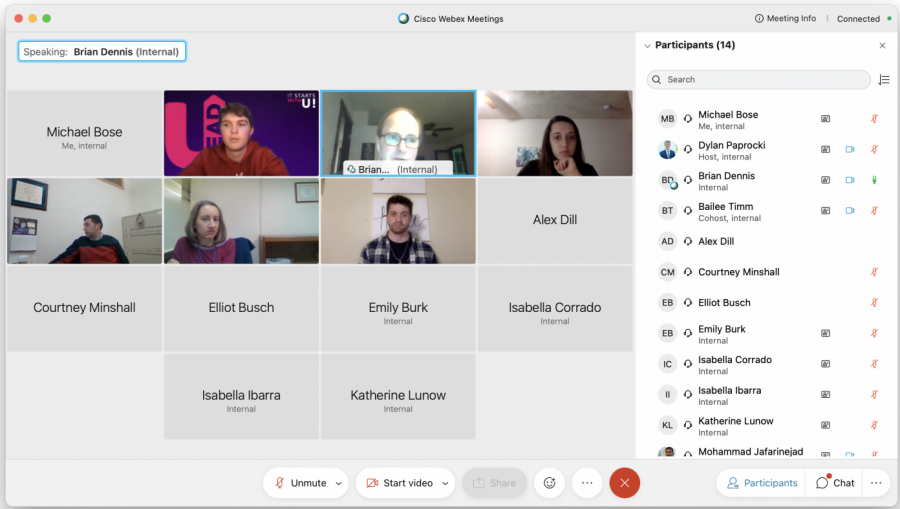Cyber attack on campus
March 21, 2021
Phishing emails are one of the many cyber attacks that advanced hackers are using to steal your or the universities information. A phishing email is an unverified email address pretending to be a company, employer or royalty asking for a donation or claiming that you owe them money. Brian Dennis, Director for Cybersecurity of Business at UWW, explained cyber security during his money smart series event on Feb. 23.
Brian had a knack for rebuilding coffee shops after they were destroyed in hurricane Katrina, he then got his master’s in emergency management and homeland security with a disaster recovery certification. One stat that Dennis told the WebEx attendees was that attacks can be in your computer for years without you knowing. Another fact presented during the event is that the local police department can’t do much about cyber attacks, the FBI is most capable of fending off these attacks. The biggest criminal enterprise in the world is cyber attacks, these criminals can be anywhere or any age.
“A sixteen year old in Canada was able to steal one hundred and sixty thousand dollars from a elderly woman,” explains Dennis. The majority of victims are older age individuals because they are more vulnerable and susceptible to attacks. These criminals operate on the dark web and buy emails with bitcoin, with a three percent hit rate of 1,000 emails the offender stands to gain over 100,000 dollars.
Max Engel is a sophomore currently majoring in marketing, he is very concerned about cyber attacks and understands the dangers that come with them. Engel explains how frequently he changes his password, “almost everyday.” Engel is constantly changing his password while having a third party password protector from best buy. Dennis says that best buy has the best password protection for its price, he believes that this is a safety guard for some cyber attacks. Dennis and Engel shared similar views on the impact the pandemic has had on cyber security, Dennis said that attacks rose almost 400 percent, this number is horrifying. The cyber criminals are realizing many people are working from home and are more likely to pick up their phones or laptops and fall victim to scams. Cyber criminals attack when the public is most vulnerable, another huge spike in cyber crime was during the 2008 recession.
Engel had never considered a job in the cyber security field, however this is one of the most rapid growing markets. Dennis said that in Wisconsin alone right now there are 5,237 open cyber security jobs, and he also encourages students to apply to the cyber security on campus. If you are interested in learning more about cyber security job openings on campus contact Brian Dennis on his linkedin or email [email protected].











